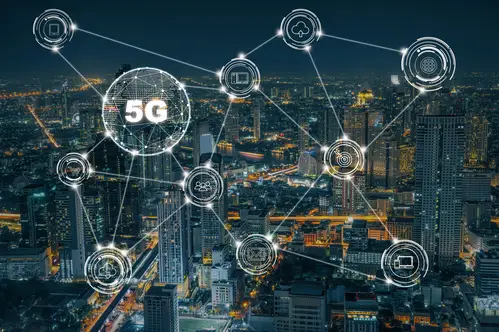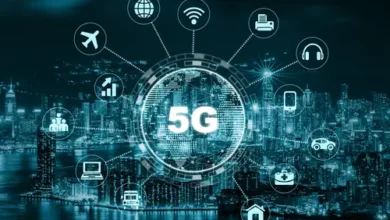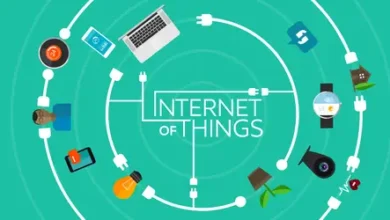The Potential of 5G: Revolutionizing Connectivity and Communication

Welcome to the era of unprecedented speed and connectivity; welcome to the realm of 5G technology. In a world where every solitary moment counts, imagine a faster, more efficient way of transferring data. This will revolutionize our everyday communication procedures. Consider this: downloading full-length movies in mere seconds or experiencing ultra-realistic augmented reality on your smartphones with zero latency issues – sound like science fiction? Well, not anymore! With the introduction of 5G technology, we are stepping into an age where such feats become routine. This post titled “The Potential of 5G: Revolutionizing Connectivity and Communication” aims to provide you with insights about how this quantum leap in wireless communication is setting new standards for networking infrastructure globally. Ready for a trip at warp-speed across the digital universe? Strap yourselves in as we dive headfirst into exploring what makes 5G nothing short of revolutionary.
Understanding the Evolution and Potential of 5G Technology
The evolution of 5G technology represents a significant advancement in the field of telecommunications. Understanding the journey of 5G from its conceptualization to its current state requires an exploration of key technological milestones and industry collaborations. The development of 5G has been driven by the need for faster data speeds, increased network capacity, and lower latency to support a wide array of applications, including IoT devices, autonomous vehicles, and virtual reality. From the initial standardization efforts to the ongoing deployment of 5G networks worldwide, this evolution has been marked by continuous innovation and investment in research and development. As the potential of 5G continues to revolutionize connectivity and communication, its impact on society and the digital economy is expected to be transformative.
Key Features and Benefits of 5G Connectivity
5G technology boasts several key features and benefits that set it apart from its predecessors. One of the most prominent advantages of 5G connectivity is its significantly faster speeds, enabling users to download and upload data at unprecedented rates. This high speed allows for real-time interactions and seamless streaming, revolutionizing the user experience. Additionally, 5G offers lower latency, meaning there is virtually no delay in data transmission. This makes it ideal for applications like autonomous vehicles and remote surgeries. Furthermore, the increased network capacity of 5G enables more devices to connect simultaneously without sacrificing performance. This paves the way for the widespread adoption of the Internet of Things (IoT) technology.
The Role of 5G Technology in Accelerating Digital Transformation
5G technology is playing a pivotal role in accelerating digital transformation across various industries. With its lightning-fast speeds and low latency, 5G is enabling the rapid deployment of advanced technologies such as Internet of Things (IoT), artificial intelligence, and augmented reality. This next-generation network is unlocking new possibilities for businesses to enhance efficiency, improve customer experiences, and drive innovation. By providing reliable and high-speed connectivity, 5G is revolutionizing communication channels and opening up opportunities for remote work, autonomous vehicles, and smart cities. As organizations worldwide embrace the capabilities of 5G, they are poised to transform their operations and stay ahead in the digital age.
Potential Challenges and Controversies Surrounding 5G Implementation
5G Implementation include concerns about health risks from increased radiation exposure. As the higher frequency used in 5G technology requires more cell towers and antennas. This leads to potential environmental impacts. Privacy issues also arise, as the vast amount of data transmitted through 5G networks could be susceptible to breaches. Additionally, there are worries about the digital divide widening, as some regions may not have access to 5G technology, exacerbating existing inequalities. Furthermore, the deployment of 5G infrastructure may face opposition from local communities due to aesthetic concerns and perceived property devaluation. Addressing these challenges and controversies will be crucial for the successful and responsible implementation of 5G technology.
Future Prospects: The Impact of 5G on Society and Industries
The widespread adoption of 5G technology will revolutionize connectivity and communication in society, as well as in various industries. Ultra-fast speeds, low latency, and high capacity, makes 5G enable to enhance efficiency of communication networks and faster data transfer. Furthermore, it supports the development of new innovative technologies like augmented reality and autonomous vehicles. In the healthcare sector, 5G can facilitate remote patient monitoring, telemedicine, and surgical robotics. Similarly, in manufacturing, it can enable the implementation of smart factories and advanced automation systems. Overall, the deployment of 5G is set to bring significant advancements and improvements to various aspects of society and industries.





